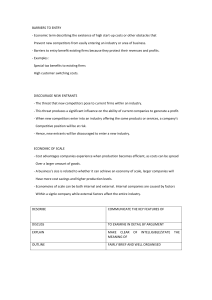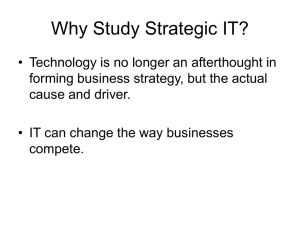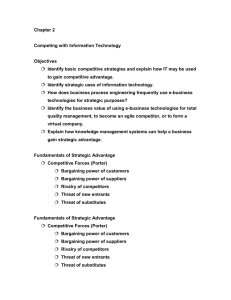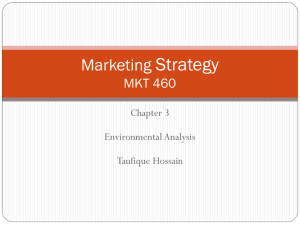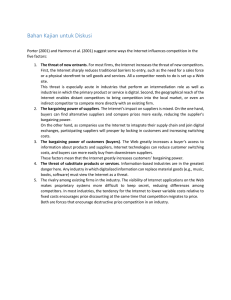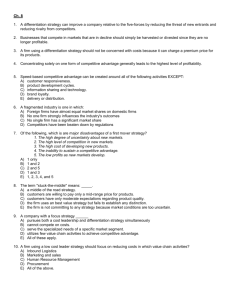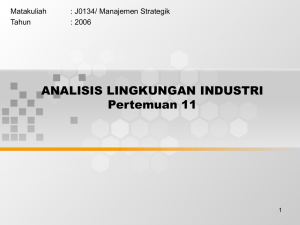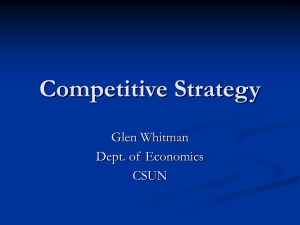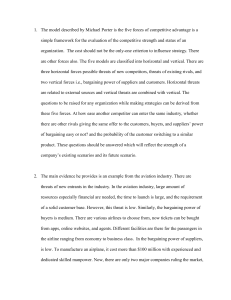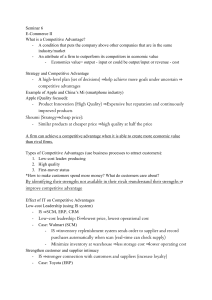Pertemuan Kesembilan Industry Analysis 1
advertisement
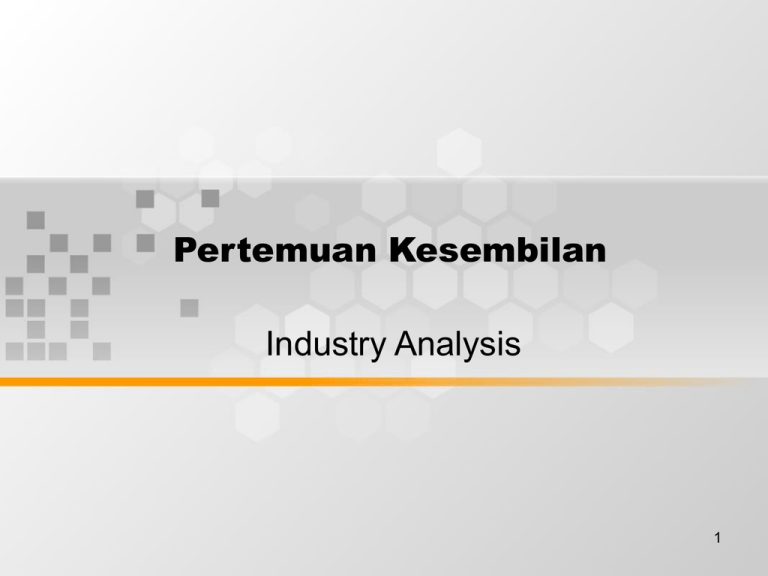
Pertemuan Kesembilan Industry Analysis 1 Markets and Industries: What’s The Difference? • An industry is a group of firms that offer a product or class of products that are similar and are close substitutes for one another. • The difference between markets and industries is an important one. Sellers who look only to others in their own industry as competitors are likely to overlook other very real rivals and risk having their markets undercut by innovators from other industries. 2 Challenges in Market and Industry Definition • Levels of analysis: – Industry, – Product class, – Product type • Examples: Morning meals 3 Driving Forces • Proter’s five competitive forces: – Rivalry among present competitors: • There is high investment intensity; that is, the amount of fixed and working capital required to produce a dollar of sales is large. • There are many small firms in an industry or no dominant firms exist. • There is little product differentiation • There is a high cost to changing suppliers 4 Driving Forces – Threat of new entrants: • When strong economies of scale and learning effects are present, since it takes time to obtain the volume and learning required to yield a low relative cost per unit. • If the industry has strong capital requirements at the outset • When strong product differentiation exists • If gaining distribution is particularly difficult • If a buyer incurs switching costs in moving from one supplier to another 5 Driving Forces – Bargaining power of suppliers – Bargaining power of buyers – Threat of substitute products • Example: perfect competition, monopoly, oligopoly market 6 Conclusion • Companies are more likely to be successful in generating sales and profits if the opportunities they pursue are blessed with the following conditions: – Driving forces for the industry are favorable – The industry’s five forces are,on balance favorable – Local competitive conditions are favorable 7
